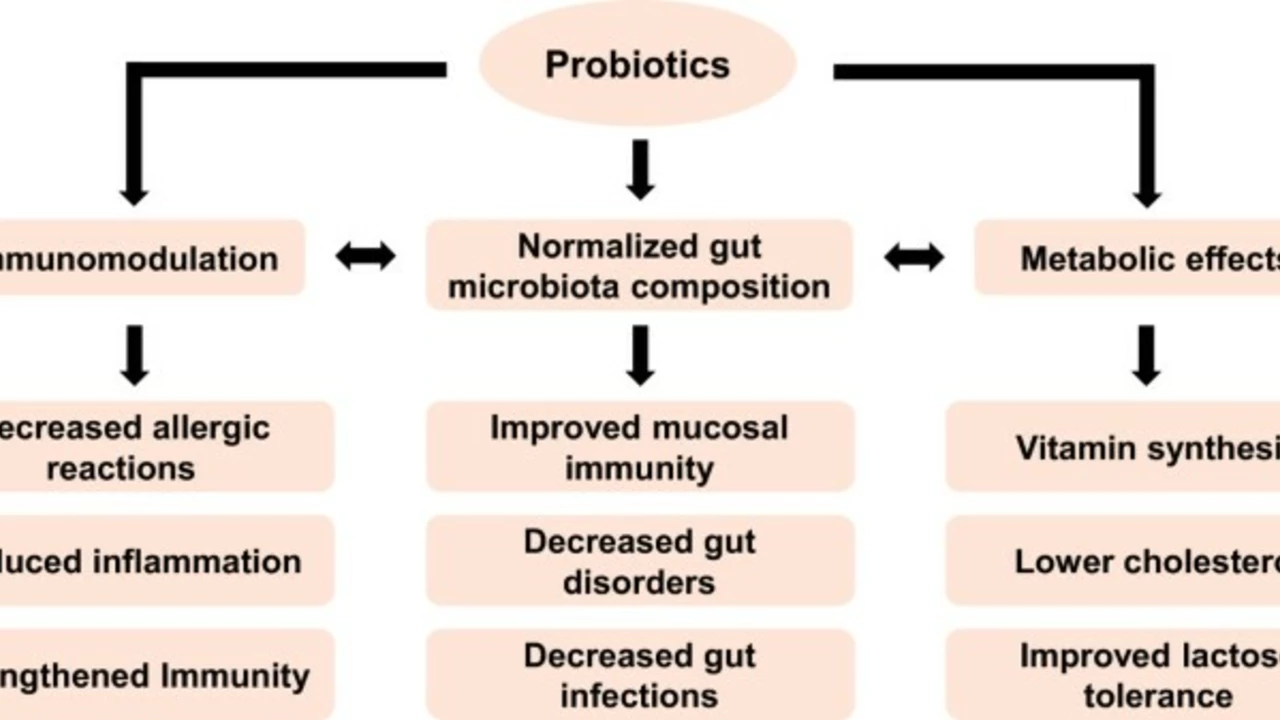Probiotics: How to Pick, Use, and Stay Safe
Your gut holds trillions of bacteria. Probiotics are live microbes that can help restore balance after antibiotics, upset stomachs, or when digestion feels off. They don’t fix every problem, but the right one can ease diarrhea, support some forms of irritable bowel, and help after antibiotic courses.
What probiotics are — They’re strains of bacteria and yeasts, like Lactobacillus, Bifidobacterium, and Saccharomyces boulardii. Each strain does different things. Some help make vitamins, others reduce inflammation signals, and some compete with harmful bugs.
Choosing a Probiotic
Match the strain to the goal. For antibiotic-associated diarrhea, Saccharomyces boulardii and some Lactobacillus strains have good evidence. For IBS with diarrhea, look for Bifidobacterium infantis or targeted multi-strain mixes tested in trials. Don’t buy just because of a high CFU number. Effective doses in studies often range from 1 billion to 50 billion CFU per day depending on the condition.
Check the label for species and strain names, CFU at time of manufacture and, if listed, at expiry. Prefer products with third-party testing or those sold by reputable pharmacies. If you want food sources, yogurt with live cultures, kefir, sauerkraut, kimchi, and miso are solid picks. Food gives smaller doses but adds nutrients.
Using Probiotics Safely
Start with a recommended dose and give it at least two to four weeks to see effects. Take probiotics with food unless the label says otherwise. Store them as instructed — some need refrigeration, others are shelf-stable. If a product loses viability, it won’t work well.
Side effects are usually mild and brief. Bloating, gas, or a change in stool can happen in the first days. Stop if you get severe belly pain, fever, or signs of infection. People with weakened immune systems, recent major surgery, or central lines should check a doctor first. Probiotics can interact rarely with medications in complex ways, so mention them when you talk to your clinician.
Pregnancy and kids: choose products tested for those groups. Many pediatric probiotics exist and dosing is different from adults. Pregnant people should pick brands with clear safety data.
Track results. Write down symptoms before you start and after two to four weeks. If no benefit appears, try a different strain or stop. For persistent digestive problems, blood in stool, unexplained weight loss, or fever, see a healthcare provider promptly.
Want quick wins? Eat a variety of fermented foods, avoid unnecessary antibiotics, stay active, and eat fiber. These everyday steps help the gut bugs thrive more than any single supplement. If you’re unsure which probiotic fits your needs, ask a pharmacist or your doctor for a brand with evidence for your condition.
Examples: a common choice after a short antibiotic course is Saccharomyces boulardii 250–500 mg daily for 7–14 days. For ongoing IBS symptoms, a multistrain product with at least Bifidobacterium infantis at clinical dose may be tried for 8–12 weeks. Always keep receipts and batch codes for recalls and report bad reactions to the seller. Save packaging and expiry dates.
Probiotics can help with antibiotic-associated diarrhea and pediatric infectious diarrhea, but not all strains work for every issue. Learn which ones actually work, how to choose them, and what science says about their real benefits.
As a health enthusiast, I've been intrigued by the role of probiotics in preventing infections. Probiotics, those beneficial bacteria that reside in our guts, can actually play a significant part in warding off harmful pathogens. They work by boosting our body's natural defenses and maintaining the balance of our intestinal flora. Recent studies have proven their effectiveness in combating urinary tract infections, respiratory infections, and even certain types of gastroenteritis. To sum up, including probiotics in our diet may be a simple and natural way to keep many infections at bay.


